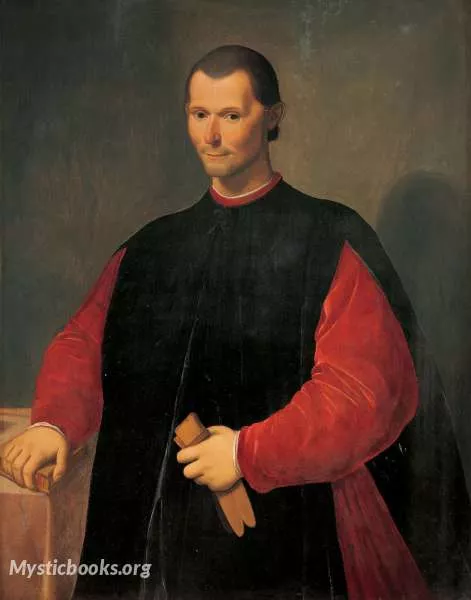
Timeline
Title
Country/Nationality
Niccolò Machiavelli
Niccolò di Bernardo dei Machiavelli was an Italian Renaissance diplomat, philosopher and writer, best known for The Prince (Il Principe), written in 1513. He has often been called the father of modern political philosophy and political science.
For many years he served as a senior official in the Florentine Republic with responsibilities in diplomatic and military affairs. He wrote comedies, carnival songs, and poetry. His personal correspondence is of high importance to historians and scholars. He worked as secretary to the Second Chancery of the Republic of Florence from 1498 to 1512, when the Medici were out of power.
Machiavelli's name came to evoke unscrupulous acts of the sort he advised most famously in The Prince. Machiavelli considered political battles, not through a lens of morality, but as though they are a board game with established rules. His experience showed him that politics have always been played with deception, treachery and crime. He also notably said that a ruler who is establishing a kingdom or a republic, and is criticized for his deeds, including violence, should be excused when the intention and the result is beneficial. Machiavelli’s Prince was much read as a manuscript long before it was published in 1532 and the reaction was mixed. Some considered it a straightforward description of the evil means used by bad rulers; others read in it evil recommendations to tyrants to help them maintain their power.
The term Machiavellian often connotes political deceit, deviousness, and realpolitik. Even though Machiavelli has become most famous for his work on principalities, scholars also give attention to the exhortations in his other works of political philosophy. While much less well known than The Prince, the Discourses on Livy (composed c. 1517) is often said to have paved the way of modern republicanism.
Machiavelli was born in Florence, Italy, the third child and first son of attorney Bernardo di Niccolò Machiavelli and his wife, Bartolomea di Stefano Nelli. The Machiavelli family is believed to be descended from the old marquesses of Tuscany and to have produced thirteen Florentine Gonfalonieres of Justice, one of the offices of a group of nine citizens selected by drawing lots every two months and who formed the government, or Signoria; but he was never a full citizen of Florence because of the nature of Florentine citizenship in that time even under the republican regime. Machiavelli married Marietta Corsini in 1502.
Machiavelli was taught grammar, rhetoric, and Latin. It is thought that he did not learn Greek even though Florence was at the time one of the centers of Greek scholarship in Europe. In 1494 Florence restored the republic, expelling the Medici family that had ruled Florence for some sixty years. Shortly after the execution of Savonarola, Machiavelli was appointed to an office of the second chancery, a medieval writing office that put Machiavelli in charge of the production of official Florentine government documents. Shortly thereafter, he was also made the secretary of the Dieci di Libertà e Pace.
At the start of the 16th century, Machiavelli conceived of a militia for Florence, and he then began recruiting and creating it. He distrusted mercenaries (a distrust that he explained in his official reports and then later in his theoretical works for their unpatriotic and uninvested nature in the war that makes their allegiance fickle and often unreliable when most needed), and instead staffed his army with citizens, a policy that was to be repeatedly successful. By February of 1506 he was able to have marching on parade four hundred farmers, suited (including iron breastplates), and armed with lances and small fire arms. Under his command, Florentine citizen-soldiers defeated Pisa in 1509.
Machiavelli's success did not last. In August 1512 the Medici, backed by Pope Julius II, used Spanish troops to defeat the Florentines at Prato.
Machiavelli died in 1527 at 58 after receiving his last rites. He was buried at the Church of Santa Croce in Florence.
Books by Niccolò Machiavelli
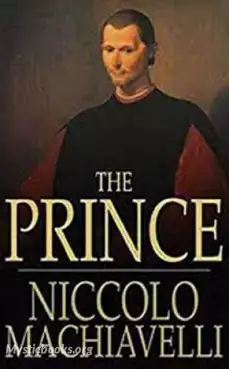
The Prince
Machiavelli has created a ruthless guide on how to rule the country in his volume "The Prince". The book is dedicated to Lorenzo De Medici, the ruler of Florence. The author explains in simple language about the nature of great men and the characters...
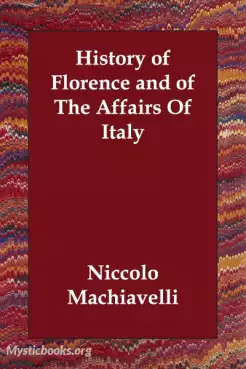
History of Florence and of the Affairs of Italy, Volume 2
History of Florence and of the Affairs of Italy is an historical account by Niccolò Machiavelli . Toward the end of 1520, the Cardinal Giulio of Medici, later Pope Clement VII, offered Machiavelli the appointment to write a history of Florence. Altho...

History of Florence and of the Affairs of Italy, Vol. 1
History of Florence and of the Affairs of Italy is an historical account by Niccolò Machiavelli. Toward the end of 1520, the Cardinal Giulio of Medici, later Pope Clement VII, offered Machiavelli the appointment to write a history of Florence. Althou...
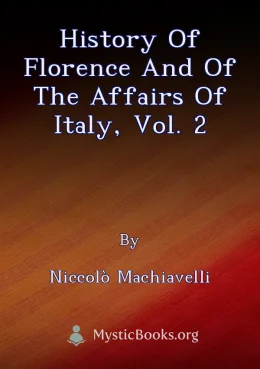
History of Florence and of the Affairs of Italy, Vol. 2
Machiavelli's *History of Florence* is a detailed account of the city's political and social evolution from its origins to the early 16th century. It examines the rise and fall of various ruling families, including the Medici, and explores the comple...
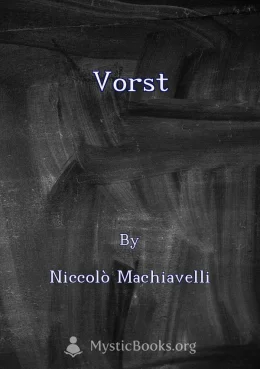
Vorst
A treatise on the art of acquiring and maintaining political power, 'The Prince' is considered a foundational work in the field of political thought. Written by the Italian diplomat and philosopher Niccolò Machiavelli in the early 16th century, it of...

Il Principe
Il Principe è un trattato politico scritto da Niccolò Machiavelli nel 1513. L'opera esplora le caratteristiche dei principati e i metodi per mantenerli e conquistarli. Machiavelli esamina i diversi tipi di governo, analizzando le virtù e i vizi dei g...

Ruhtinas
The Prince is a political treatise by Niccolò Machiavelli, first published in 1532. The book is dedicated to Lorenzo de' Medici, Duke of Urbino, and is intended to be a practical guide for rulers on how to acquire and maintain political power. Machia...

Art of War (Neville Translation)
Published in 1521, "The Art of War" stands as Niccolò Machiavelli's sole published work during his lifetime, a book he considered one of his most significant achievements. The book examines various themes introduced in his earlier works, "The Prince...

Discourses on the First Decade of Titus Livius, Book 1
In "Discourses on the First Decade of Titus Livius", Niccolò Machiavelli analyzes the first ten books of Livy's history of Rome, extracting lessons on statecraft, military strategy, and the nature of republics. Machiavelli argues that a strong state...
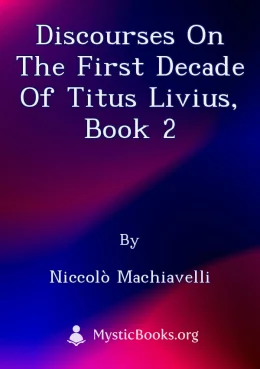
Discourses on the First Decade of Titus Livius, Book 2
Niccolò Machiavelli's *Discourses on Livy* is a profound examination of the Roman Republic, particularly the first decade of Livy's *Ab urbe condita*. The book explores the expansion of Rome from its early monarchy to the end of the Third Samnite War...

Discourses on the First Decade of Titus Livius, Book 3
Niccolò Machiavelli's "Discourses on the First Decade of Titus Livius" is a seminal work of political theory that examines the rise and fall of the Roman Republic. Drawing on the first ten books of Livy's history of Rome, Machiavelli analyzes the pol...

mandragola
Mandragola is a satirical comedy written by Niccolò Machiavelli in the early 16th century. The play revolves around the cunning schemes of Callimaco, who desires the beautiful Lucrezia, a virtuous woman married to the gullible Messer Nicia. To achiev...